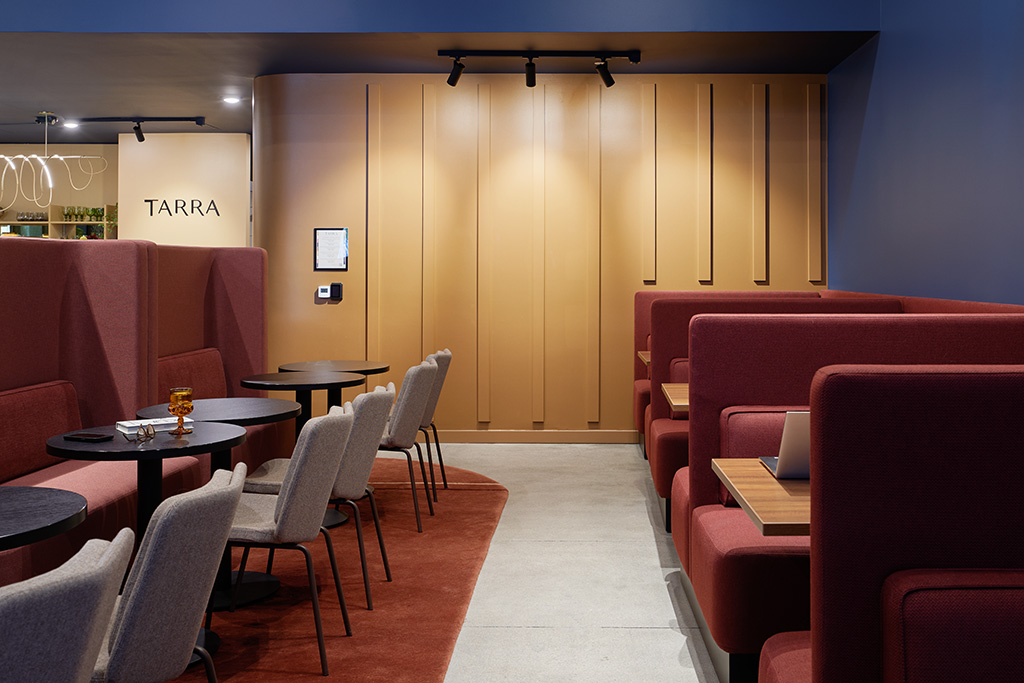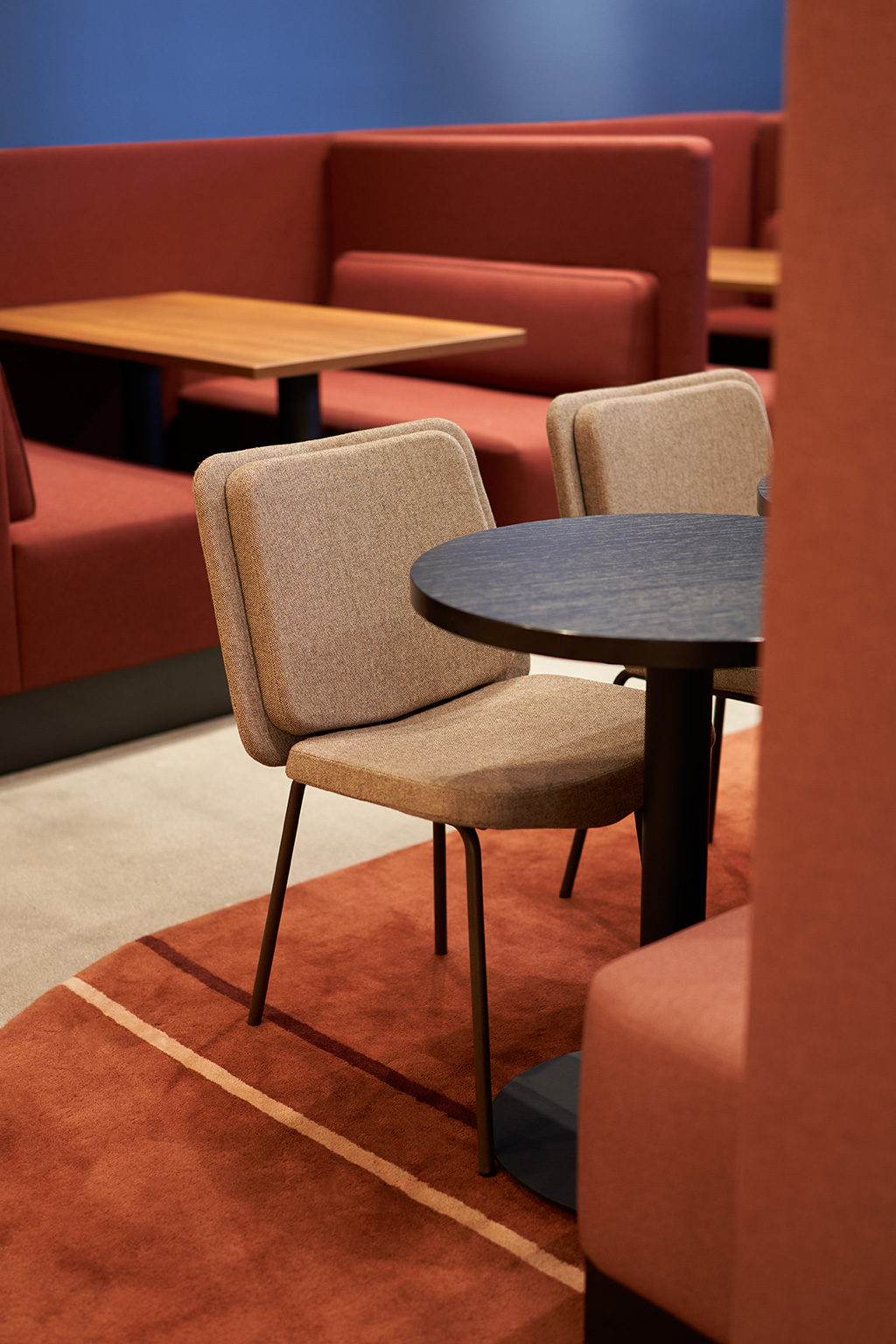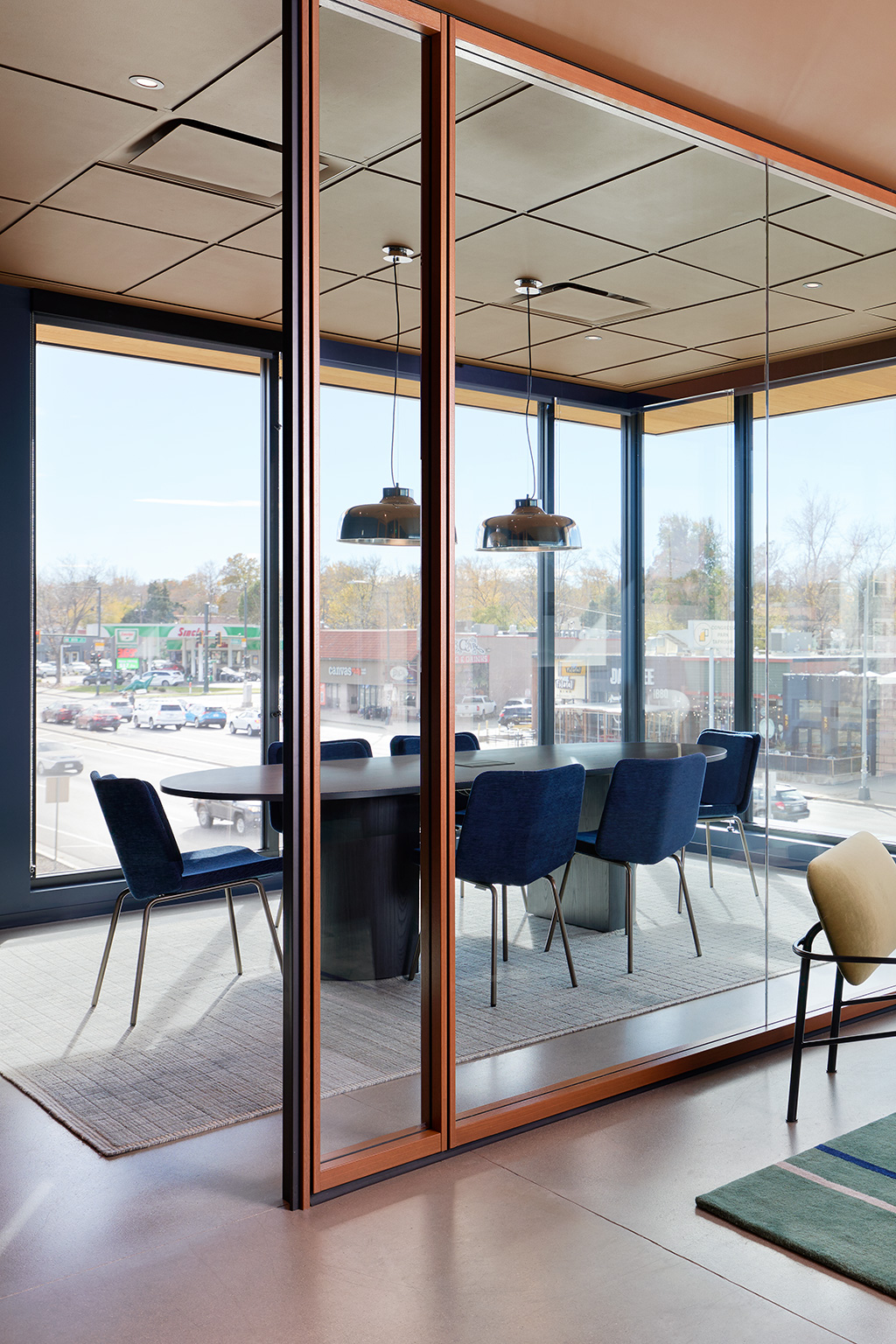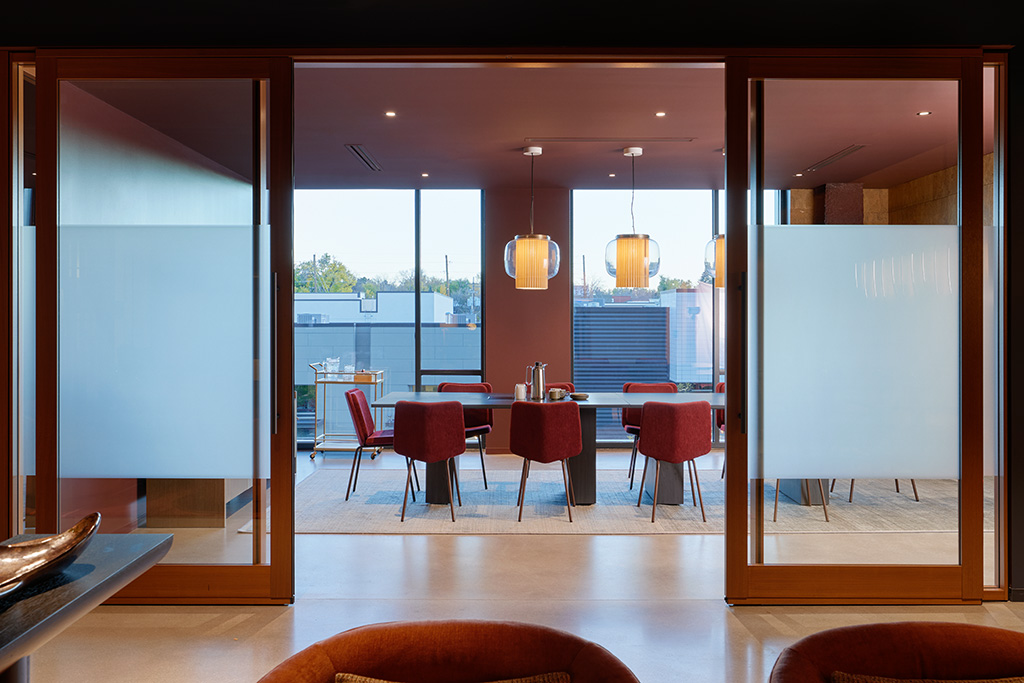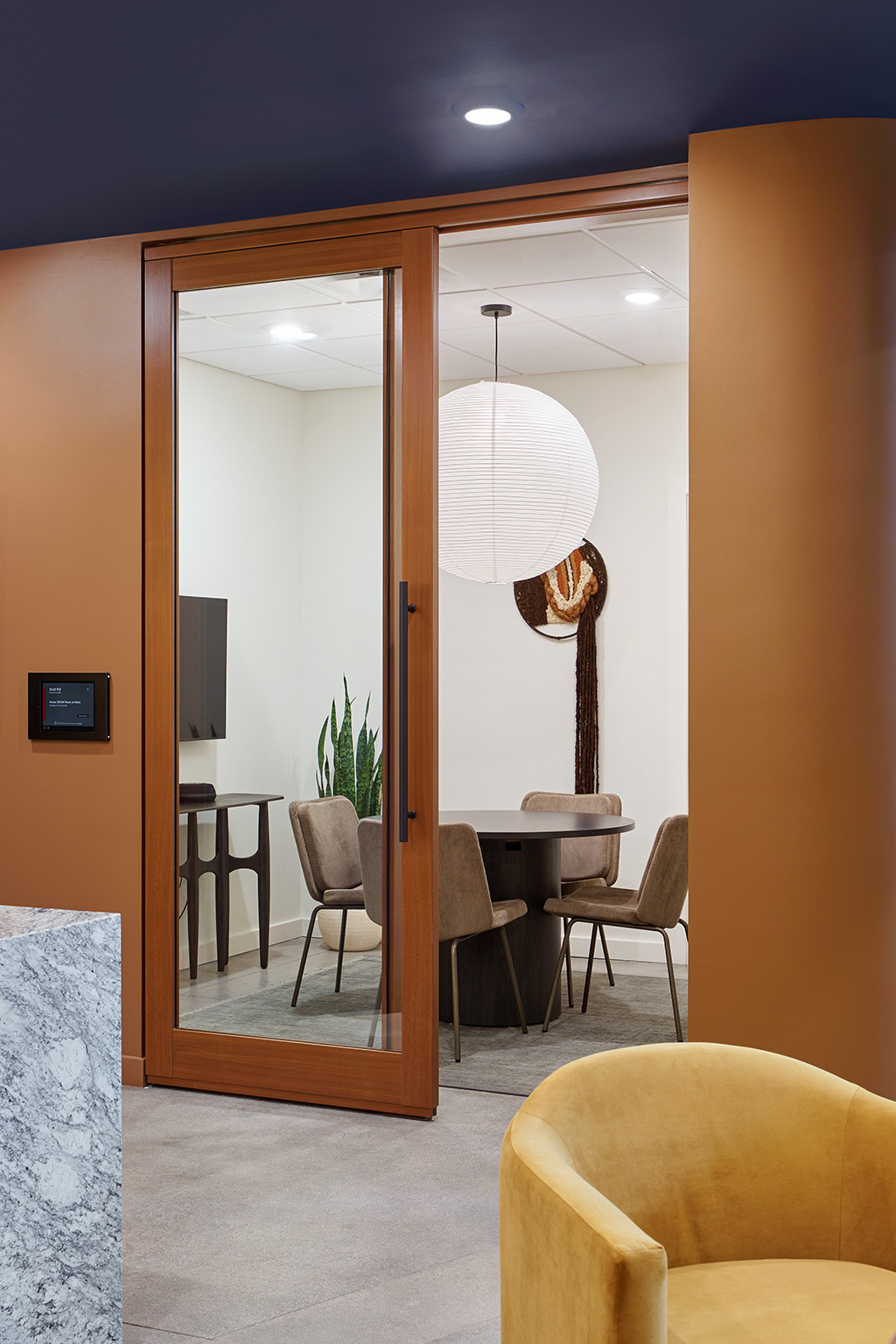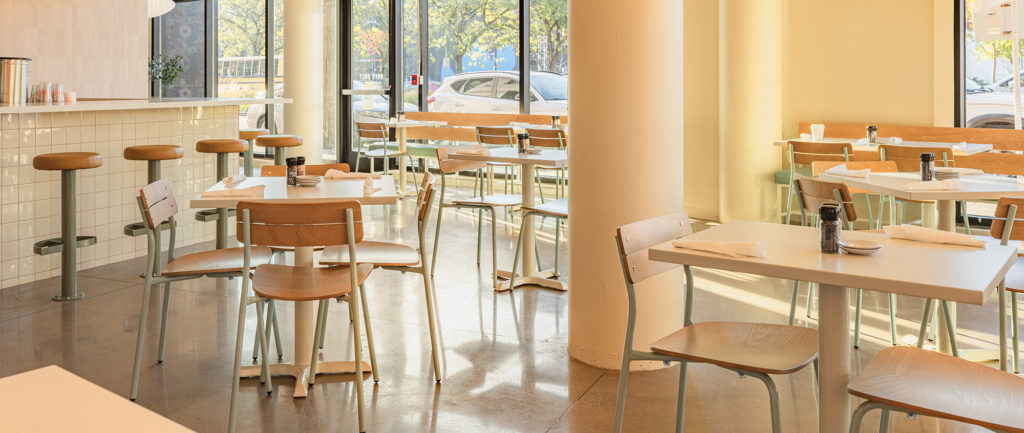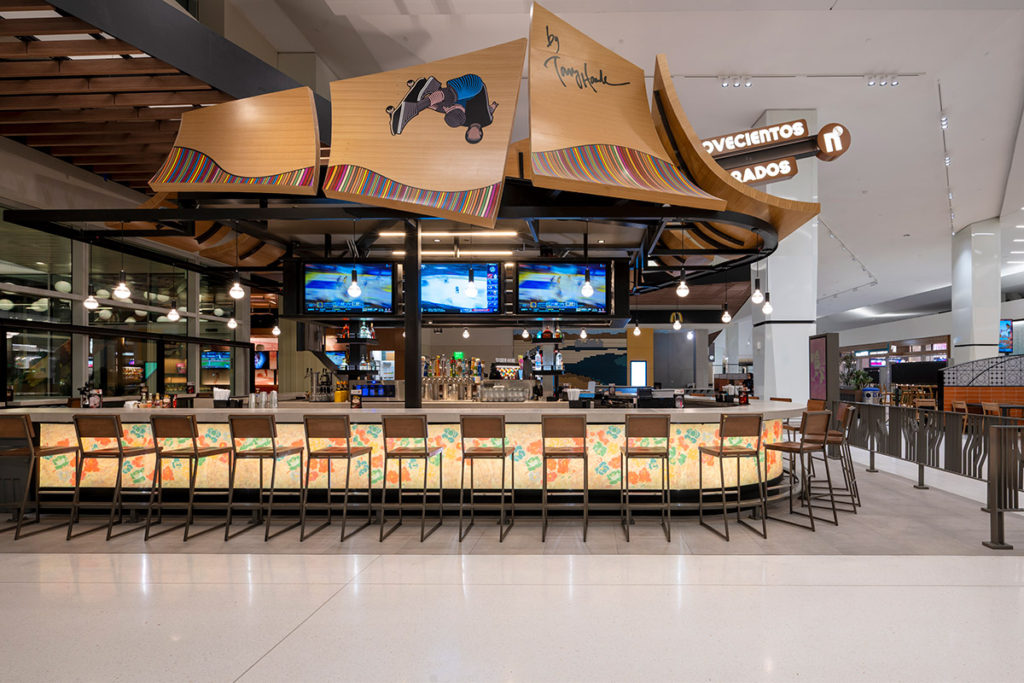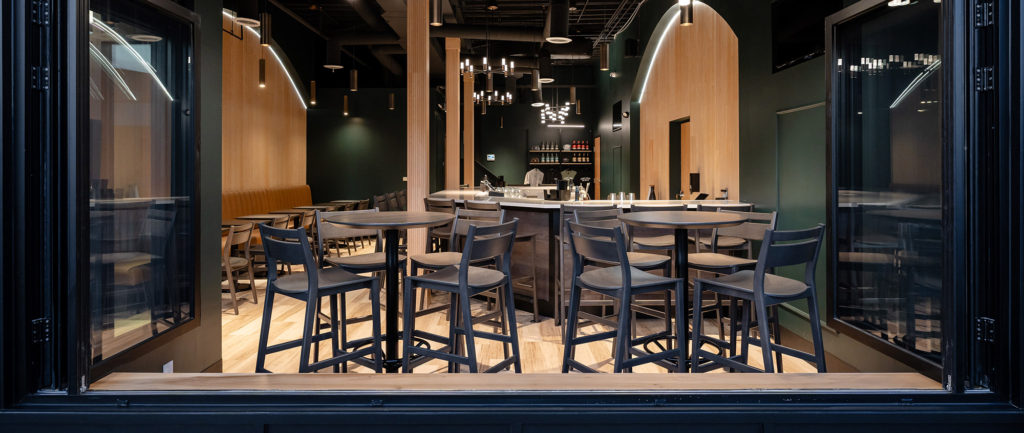Flexible Denver Coworking Space Designed for Connection and Collaboration
In response to an evolving modern workplace, Denver-based coworking space, TARRA, brings a new model of community building to the modern professional.
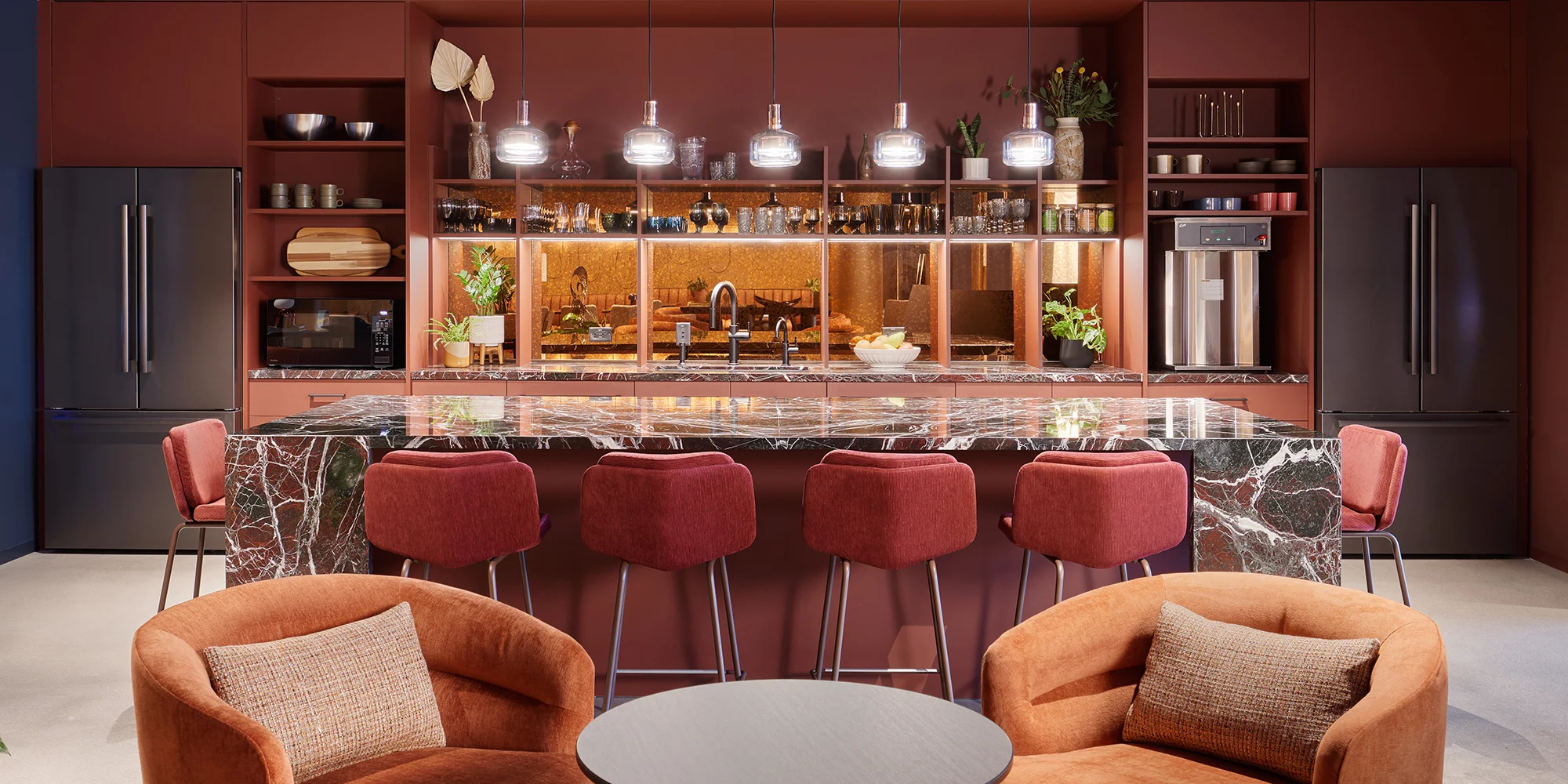
In response to an evolving modern workplace, Denver-based coworking space, TARRA, brings a new model of community building to the modern professional. TARRA is a bold "70s feminism meets a members only club" inspired space where female professionals can build authentic connections and support systems. In partnership with Los Angeles-based architecture and design firm, ORA, TARRA aims to provide a flexible space to build a community for its female members. Oonagh Ryan, AIA, IIDA and Founding Principal at ORA shared her insights on the design evolution that brought not only the first TARRA location but the brand identity to life.
In the Business of Building Community
TARRA's first location resides in Denver's 9+CO neighborhood, setting the stage for a workspace that seamlessly integrates into the vibrant community. More than just a coworking space, TARRA is a woman-owned, community-driven initiative that is part coworking space, part collaborative platform that aims to support and empower a diverse range of female professionals. For the brand to be successful, TARRA needed an agile space that could not only cater to a range of use cases but grow with the evolving modern workplace.
ORA made intentional design choices, including the selection of color palette, finishes and furniture, aimed at fostering a sense of belonging and collaboration. The design concept was inspired by the qualities that naturally exist in neighborhoods and bring them into the modern workplace. Driven by the need to support hybrid work, establish connections, create a sense of belonging and promote wellbeing, the success of the project is not just measured in aesthetics but in the thriving community that has been built over the past year.
"Neighborhoods exude energy. Nothing is static; places and activities adapt and change. The neighborhood is where we form relationships, feel a sense of belonging, and build trust." — Oonagh Ryan, AIA, IIDA and Founding Principal at ORA
Shaping the Brand's Identity
Seventies Vibes and Materiality
As ORA began plans for the space, the TARRA brand identity also took shape — transforming their once online-exclusive presence into a holistic office experience. Beyond aesthetics, ORA's design aligns seamlessly with the brand's core values of optimism, high quality, and engagement. The color story, material choices, and furniture selection work in tandem to craft a remarkable and inviting atmosphere. This design philosophy not only defines the essence of the TARRA brand but also positions it to extend its empowering ethos to communities throughout the United States.
Guided by a "70s feminism meets a members only club" aesthetic, TARRA stands in contrast to the overly feminine style that many women-only coworking spaces feature. The result was a bold, moody space with a boutique feel that felt feminine, but not so feminine that it was unapproachable by men. The incorporation of seventies feminism through materiality, particularly the use of corduroy, cork, rich wood and jewel tones, adds a distinctive and timeless touch to the overall design narrative. These elements contribute to an environment that strikes a harmonious balance between aspiration and comfort.
Finding "The Chair"
As the design process unfolded, searching for the right chair became a pivotal aspect of the project. The emphasis was on finding "the chair" that not only offered comfort but also aligned with the distinctive seventies-inspired design brief. The chair needed to cater to diverse body types, making it essential to put it through rigorous testing. Enter Alfred, a seating family that not only met the comfort criteria but exceeded expectations, earning its place as the focal point of TARRA's design.
Upholstered in a range of 70s-inspired fabrics, ranging from corduroy to velvet, Alfred's ability to exude a seventies vibe while remaining versatile enough to fit seamlessly into a modern co-working environment. The chair's unique design and customizable fabric options allowed it to effortlessly complement the unique color map that flowed throughout the space. By outfitting Alfred in a range of metal finishes and upholstery options, Alfred acted as a chameleon piece that echoed the color palette of each area, while creating a cohesiveness in the space as a whole.
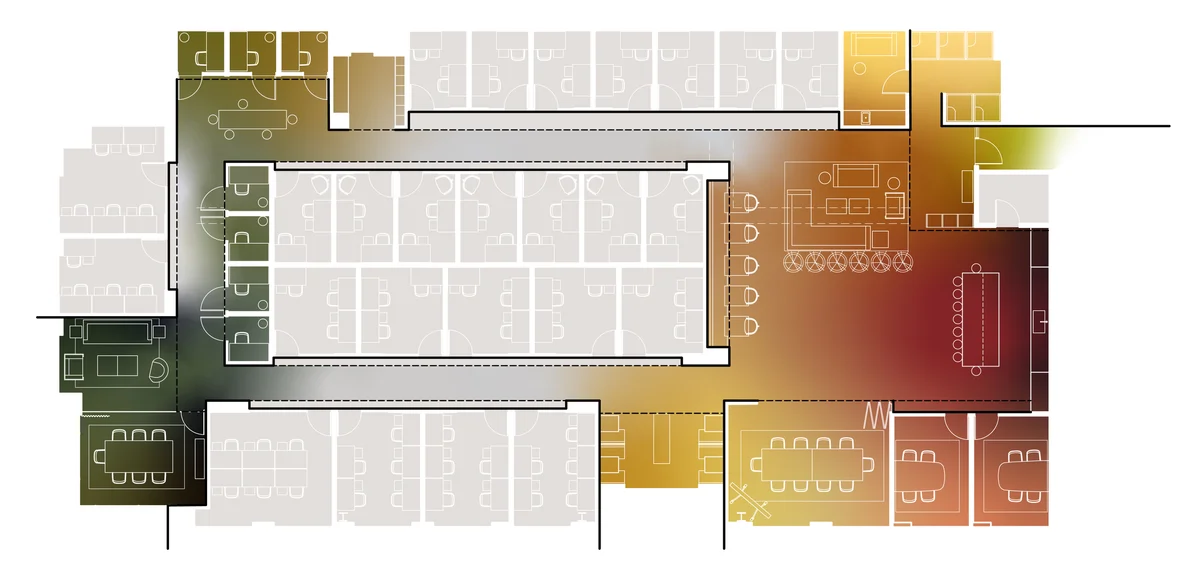
One standout feature of Alfred was its adaptability to ADA (Americans with Disabilities Act) standards. The ability to adjust the chair's height made it suitable for various settings, from boardrooms to public spaces, addressing the unique needs of TARRA's diverse community. This adaptability proved crucial in ensuring the cohesiveness of the space while maintaining comfort and accessibility. The decision to invest in furniture with a timeless quality reflected a forward-thinking approach, anticipating the brand's growth and potential expansion to other locations.
Designing for Longevity
With active plans to relocate from their current location to a redevelopment of a historic nurse's dorm building, TARRA's current location is meant to serve them for two to five years before relocating to the renovated space. While TARRA's current location is temporary, the design decisions made here set the stage for their impending relocation, as well as new locations in other metropolitan areas across the United States.
Given the temporary nature of TARRA's space, budget constraints were a significant factor in the design process. Avoiding elements that were trendy today and dated in five years, ORA had to ensure that the chosen finishes and furniture choices would withstand the test of time. Oonagh emphasized the importance of being resourceful in such situations, where the challenge is to maximize potential with limited resources, noting that Alfred's value for money made it a staple component of TARRA's budget-conscious design.
Guided by a "70s feminism meets a members only club" aesthetic, TARRA is apart from other women-only coworking spaces. The intentional design choices, inspired by the dynamic qualities of neighborhoods, successfully transformed TARRA into more than just a workspace — it became a thriving community where authentic connections and support systems flourish. As TARRA plans for relocation and expansion, the design decisions made at the initial location lay the foundation for future endeavors. The commitment to brand consistency, combined with the incorporation of unique elements reflecting local communities, emphasizes TARRA's mission to build connections beyond physical spaces. Overall, TARRA's journey exemplifies the successful fusion of design, functionality, and community-building in the evolving landscape of modern workspaces.
